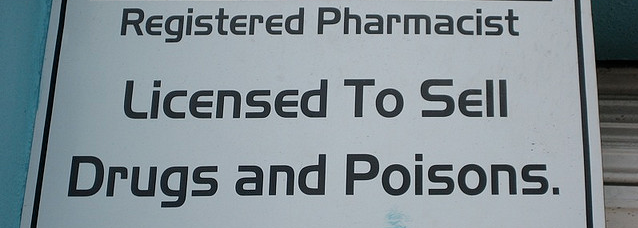Should An FDA Advisory Committee Chair Be Giving Drug Companies Tips On How To Get Approved?
At the upcoming 5th Annual Summit on FDA Advisory Committee Prep — a conference aimed at professionals in the drug and medical device industries — there will obviously be speakers and panels with industry folks sharing their perspectives on, and experiences with, the approval process.
There will also be a discussion, titled, “Pitfalls to Avoid as You Prepare for, and Present to, an Advisory Committee,” led not by an industry insider or even a former FDA advisory committee member, but by Harvard’s Dr. Lynn Drake, who also happens to be the Chair of the FDA’s Dermatologic and Ophthalmic Drugs Advisory Committee.
The brochure [PDF, scroll down after letter] description of Drake’s lecture is light on hard details, but does say that the Chair will talk “about what mistakes she has seen first-hand that she wishes the sponsoring companies had avoided,” and will provide “steps to tackle” problems like “Not looking at guidance documents the FDA publishes,” “Fear of talking to the FDA before your meeting,” and “Not effectively analyzing risks up front.”
Having a doctor who currently chairs an FDA advisory committee give advice to the pharmaceutical industry rubs some the wrong way, including the people at Public Citizen, which has written FDA Chair Margaret Hamburg about its concerns.
Drake’s decision to speak at the conference “reflects poor judgment and seriously undermines and demeans the important FDA advisory committee process,” writes Public Citizen’s Dr. Sidney Wolfe, “particularly when the chair seeks to help drug companies avoid mistakes that could arguably have cost them a chance to get ‘favorable [advisory committee] recommendations’ for their drugs.”
Concerned that Drake’s decision reflects a pro-industry leaning, Public Citizen has asked Hamburg if the doctor sought advice from the FDA before agreeing to appear at the conference, and if the agency has any policies regarding such appearances.
To us, whether or not Dr. Drake’s appearance at the conference crosses a line has to do with the specifics of the information she chooses to share.
For example, if she’s providing drug companies with information on how best to present information in a light that is favorable to receiving approval, then that could be seen as revealing too much about the inner-working and thought processes of committees.
But if the advice is relegated to matters of procedure, like what materials need to be included in a presentation (as opposed to advice on the content of the presentation), then this may be just a matter of Dr. Drake trying to make sure that the industry understands the rules of the game.
Want more consumer news? Visit our parent organization, Consumer Reports, for the latest on scams, recalls, and other consumer issues.


